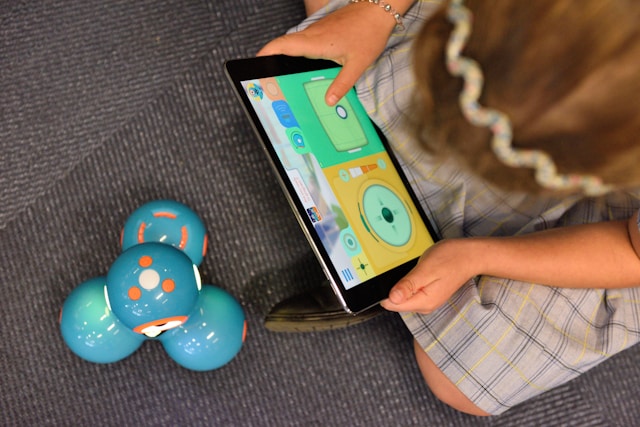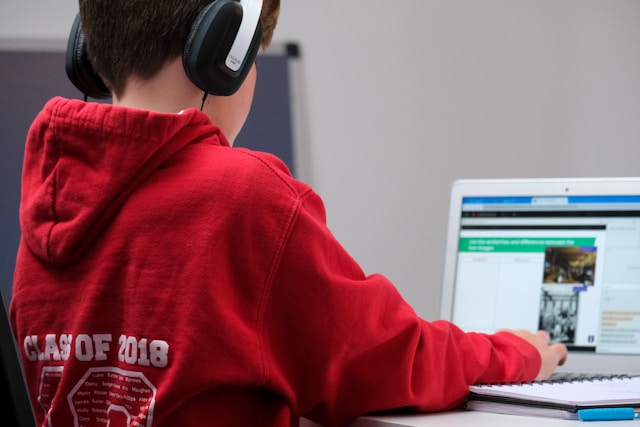
Television has seamlessly woven itself into the fabric of our daily lives, captivating audiences of all ages with its diverse range of programming. For many families, TV serves as a valuable source of information, entertainment, and education. However, the potential downsides of TV, especially for children, often prompt parents to impose strict viewing limits. Yet, with the right approach, television can be a powerful tool for your child’s growth and learning. Here’s how you can make the most of TV time for your little ones.
The first step in harnessing the positive aspects of television is to become a thoughtful program selector. The key is to choose children’s television programs that are specifically designed to educate and engage children. For instance, nature documentaries like “Chasing Ice” offer a captivating look at environmental changes, sparking curiosity about our planet. Similarly, science programs such as NOVA present complex concepts in an accessible and enjoyable manner.
When selecting the best kids’ TV series, consider shows that not only entertain but also educate. Educational TV shows for children that focus on social and emotional skills are invaluable. Classics like “Sesame Street” and newer favorites like “Bluey” not only entertain but also impart essential life skills. “Sesame Street,” for instance, has been a beloved resource for decades, teaching children everything from basic literacy to empathy through its memorable characters and engaging storylines. “Bluey,” a modern hit, focuses on social interaction and problem-solving, making learning feel like a natural part of play.
Watching TV together is more than just a bonding activity; it’s an opportunity for interactive learning. Engage your child in discussions about the programs they are watching. Ask them questions about the characters, plot, and lessons they’ve learned. This practice, known as ‘Active Viewing,’ transforms TV time into an interactive experience.
Dr. Rouse, a child development expert, emphasizes that Active Viewing not only enhances comprehension but also fosters critical thinking and communication skills. By discussing what they see on screen, children learn to articulate their thoughts and understand different perspectives. This interaction can also strengthen family bonds, making TV time a shared learning experience rather than a passive activity.
Effective television management involves setting clear boundaries and ensuring that TV time is balanced with other activities. Establishing a consistent viewing schedule helps regulate screen time and integrates TV into your child’s daily routine. For example, you might designate TV time for after homework or as a family activity on weekends.
Equally important is monitoring the content of the programs your child watches. Choose shows that are age-appropriate and align with your family values. For younger children, look for preschool TV shows that support early literacy and social skills. As children grow, they can handle more complex content, but it’s crucial to stay involved and aware of what they are viewing.
To make the most of popular kids’ TV channels, explore those that offer a range of animated kids’ shows that are both entertaining and educational. Ensure that your child’s daily routine includes a mix of activities such as reading, outdoor play, and creative tasks. This balanced approach helps prevent overreliance on television and supports overall development.
When used wisely, television can be a gateway to exploring new interests and learning opportunities. Shows that introduce your child to different cultures, historical events, or scientific concepts can broaden their understanding of the world. For instance, a well-crafted historical documentary or a show about global cultures can spark a lifelong interest in history or geography.
Encouraging your child to discuss what they’ve learned from TV shows can also lead to deeper understanding. Ask them to share their thoughts and feelings about the content, and how it might relate to their own experiences. This not only reinforces the information but also enhances their ability to connect new knowledge with real-life situations.
As children grow, it’s important to help them develop critical viewing skills. Teach them to analyze and question the content they consume. Discuss the motives behind different programs and advertisements, and encourage them to think critically about the messages being presented. This skill is invaluable in helping them navigate media influences as they mature.
By guiding your child through thoughtful and active engagement with television, you can help them develop a balanced perspective. Television doesn’t have to be a source of concern but can be a beneficial tool when managed properly. It can introduce your child to new ideas, foster important skills, and even strengthen family relationships.
So, are you ready to transform TV time into a positive and enriching experience for your child? Embrace these strategies to make television a meaningful part of their development, and stay informed with resources like Kids.tech for the latest insights on technology and children.


